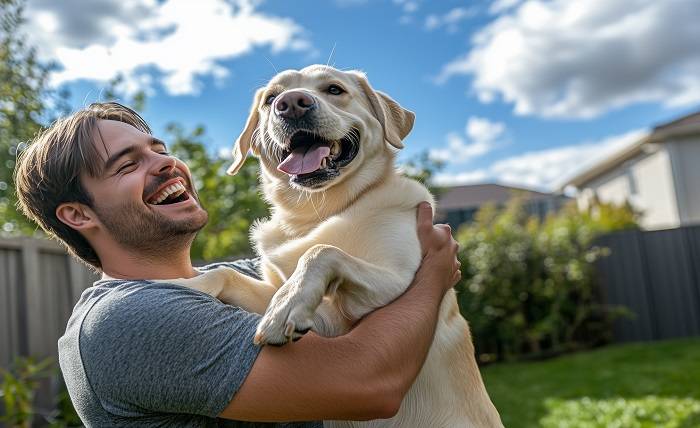Bringing home a new puppy sparks joy for the whole family. Their cute antics and affectionate nature make dogs the most beloved pets, but raising one properly takes dedication and care from day one. By understanding key areas of care, dog owners set the stage for happy, low-stress pup parenthood.
House-Training Fundamentals
No one wants unpleasant indoor accidents or chewed belongings. So laying ground rules helps dogs understand household etiquette fast. Establishing a bathroom schedule makes potty training smoother for all. This means taking pups out upon waking, after meals and naps and every few hours. Going to the same spot outside and using a command like “Go potty” teaches what to do. Praise and treats reward success.
Nutrition Know-How
Proper nutrition gives puppies the best start early on but finding an optimal food takes some trial and error. Factors like breed size, age and activity level all impact calorie needs. Staying tuned in to reactions helps identify issues like gastrointestinal trouble or allergies as well. For example, some dogs tolerate plant proteins better than chicken or beef.
Watching out for signs of intolerance like vomiting, diarrhea or excessive gas guides adjustments. The people at Nextrition say that this is where limited ingredient dog foods and dog treats for sensitive stomachs come in handy. Rotating proteins while ensuring proper fiber intake keeps systems regular. Both wet and dry foods cater to sensitivity these days for improved digestion.
Training Tips for Good Behavior
Beyond house manners and nutrition, training dogs properly channels all their smarts and energy into good behavior. Starting young with basic cues lays the foundation. Simple verbal commands like “sit,” “stay” and “come” reinforce respect and control. Hand signals may work even better for some visually oriented pups.
Rewarding wanted actions with high value treats makes lessons stick better. Finding each dog’s unique motivation helps keep them engaged and responsive. Varying up activities prevents boredom while continuing lifelong education. Mastery of dog training basics brings better bonding, safety and manners.
Common Health Issues to Know
While diligent care nurtures resilience, all dogs face some health risks in life. Recognizing common concerns helps address them promptly if they arise. Some of the most prevalent to know include:
- Allergies– Both food and environmental allergies cause itchy, irritated skin. Symptoms usually onset between ages 1 and 3. Elimination diets and allergy medication manage flare-ups.
- Arthritis– Joint inflammation and stiffness often corresponding to aging. Weight management, joint supplements and medication provide relief.
- Dental Disease– Plaque and tartar accumulation frequently lead to gum infection. Warning signs are bad breath and yellow teeth. Preventative tooth brushing and professional cleaning help avoid consequences.
- Obesity– Excess weight strains the heart, joints, and metabolism. Slimming down reverses the risks via portion control and more exercise.
Getting familiar with breed specific conditions helps stay vigilant as well. Forewarned means quicker response to anything out of the ordinary.
Conclusion
Through every life stage, gentle care sets up our furry friends for success. Patient house training and positive reinforcement prevents problem behaviors before they start. High-quality nutrition tailored to each dog’s needs gives them digestive ease. Proper socialization, exercise and veterinary care further allows them to thrive in comfort.
While individual needs vary, understanding dogs’ basic requirements paves the way for health and happiness. Giving them tools to learn our world prevents confusion and distress. Monitoring wellbeing day-to-day spotlights any issues needing more support. Though raising a confident canine takes effort, the rewarding companionship makes it all worthwhile. Sticking to gentle methods ensures their best life ahead as beloved family members.

